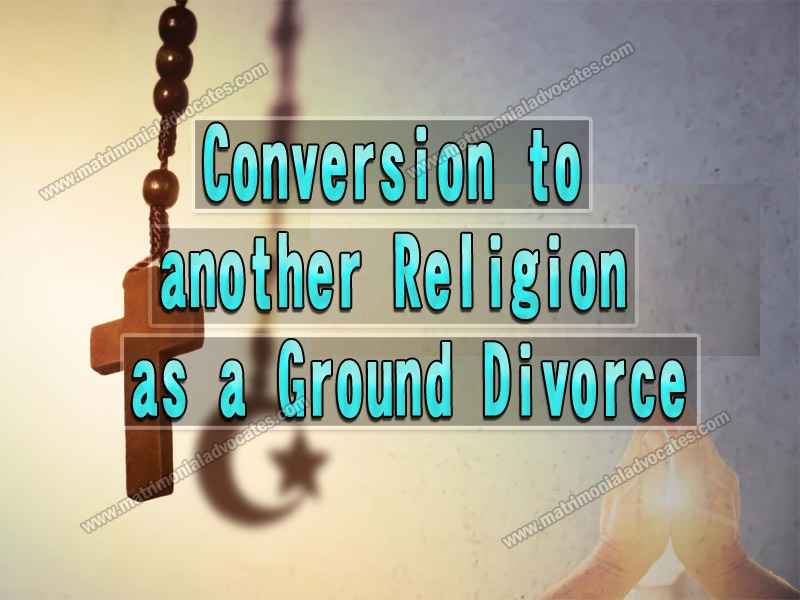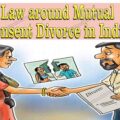
India being a secular country, the Constitution grants every individual to profess any faith or relinquish his faith that he had acquired at the time of his birth. The objective behind this, apart from the legal complications and application of different personal laws on both spouses, is the aspect of how following certain religions might result in a radical change in the personality of the person who has converted.
When parties convert from one religion to another, it gives them a ground to seek divorce from such a spouse. A contested divorce petition can be filed by the other spouse who has been left by the spouse who has converted. Conversion does not result in automatic dissolution of marriage, instead, the aggrieved party, i.e. the spouse that has been left by the converted spouse will need to file a divorce petition before the competent court of law. Automatic dissolution is seen in certain cases relating to Muslim Personal Laws.
There are few important factors to be considered as far as seeking divorce on the ground of conversion is concerned:
1. Only the spouse who has been affected by the conversion of the other spouse is entitled to seek divorce and the converted spouse cannot do so. This is effective in dealing with cases wherein either party with a mala fide intention changes his religion, for the sake of divorcing.
2. Further, even the spouse who has converted is not barred from seeking divorce from the non-converted spouse, provided the ground for divorce is based on any other ground enumerated other than his or her conversion.
The issue of whether the bona-fide or mala-fide conversion will subject a spouse to the offence of bigamy also encompasses along with the element of conversion. In the case of Sarla Mudgal v. Union of India, AIR 1995 SC 1531, the first marriage of the converted party was still held to be subsisting and the second marriage of a Hindu husband after embracing Islam being violative of justice, equity and good conscience would be void on that ground thereby attracting the provisions of Section 494, IPC. This was held on the reasoning that a Hindu husband has a right to embrace Islam as his religion however he has no right under the Act to marry again without getting his marriage under the Act dissolved. The second marriage after conversion to Islam would, thus, be in violation of the rules of natural justice and as such would be void.
Merely giving a spouse permission to convert does not take away their right to seek divorce from the converted spouse as has been held in the case of Suresh Babu v/s V.P. Leela, AIR 2007 (NOC) 285 (Ker) (DB).
A person has all the freedom to choose what religion one wants to follow, yet the other spouse should not be adversely affected and should be able to seek a divorce if that is the suitable alternative for that individual.
Going through Matrimonial Issues! Need legal advice on 498A,
Divorce, Child Custody, Domestic Violence. We are providing a niche platform
for knowledge sharing, researching and finding an Advocate for a person who is
facing litigation and gives solution for all your legal queries. MatrimonialAdvocates.Com has expert divorce
lawyers across the country.
Disclaimer: These articles are providing only general information regarding Indian Laws and should not be construed as legal advice on any subject matter. Please speak to an Advocate to discuss your specific case.





